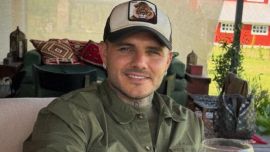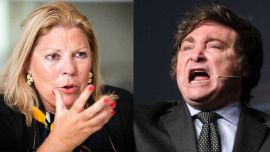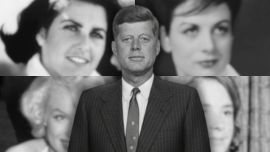“Because we are free, we can never be indifferent to the fate of freedom elsewhere. Our moral sense dictates a clearcut preference for those societies which share with us an abiding respect for individual human rights.”
---
I think I came to know Jimmy Carter most deeply and intensely when I visited Plains, Georgia, his hometown. At that time, he was just a few months short of his 100th birthday and was receiving hospice care at his simple family home. He was no longer teaching Sunday School, as he did for years, but his spirit of almost saintly simplicity still suffused the tiny town from which he hailed.
I walked with my daughter to the ordinary Baptist church and the ordinary school in a very ordinary Southern town and later to the farmhouse where he was born. It was an extraordinary experience because I had first come to know him by reporting on him from far-away Argentina when I was editor of the Buenos Aires Herald and he was president of the United States.
I had met him personally at the Carter Center, his non-profit foundation, in Georgia, when I was in exile from Argentina. But it was not until I saw the place where he was raised that I knew how to describe him.
Yet it is so simple: He was a good man who lived a good life.
President Carter’s public life was epitomised by his promise he made when he ran for public office locally, then when running for governor and finally for president of the United States: "I will never tell a lie."
Carter’s time in office was blighted by the Oil Crisis, the takeover of the US Embassy in Iran and the seizure of diplomats as hostages. But his time in office will forever be remembered for establishing human rights as a national cause.
I recall that before Carter, the US State Department would only protect its own citizens if they fell foul of a foreign dictator. But under him, thousands of lives were saved by US diplomacy, not least in Argentina, where the Armed Forces seized power on March 24, 1976, with a ruthless plan to eliminate "subversion” by "disappearing" suspects who were then kidnapped, tortured and arbitrarily murdered. In an attempt to hide what is best described as political genocide, various means of disposing of bodies were tried – from clandestine burials to incineration to drowning via the hurling of corpses from transport planes into the sea.
When I learned that James Earl Carter (it was always, just call me ‘Jimmy’) had left Plains for heaven (he was a true believer) last week, I decided that I was duty-bound to give personal testimony to his amazing defence of human rights in Argentina.
Those words in italics, at the top of the piece, had meaning and were acted upon. President Carter put together a human rights team led by Patricia Derian, a nurse who was a social worker in the South. She recruited a young diplomat, Franklyn Allen ‘Tex’ Harris (6ft 7ins), who was a Princeton basketball star. Together they took on the generals, admirals and brigadiers, brushing away death threats and constant menace.
Officially, the Junta was denying everything, but Derian was sending reports to her bosses at State that read like this: “Thirty-eight bodies, many of them without heads or hands, recently washed ashore on one Atlantic beach.”
Tex came to the aid of women who were searching for their missing children, almost literally embracing the Madres de Plaza de Mayo. He got the US ambassador to open the doors of the Embassy to the entire Deutsch family in the death camp La Perla in Córdoba that resulted in them all being saved.
There was something magical about Jimmy Carter. He looked a lot like Clarence, the angel in the film It's a Wonderful Life, who talks George Bailey out of committing suicide. And well, Jimmy Carter too was a wonderful man.
* Former editor of the Buenos Aires Herald (1968-1979).





















Comments